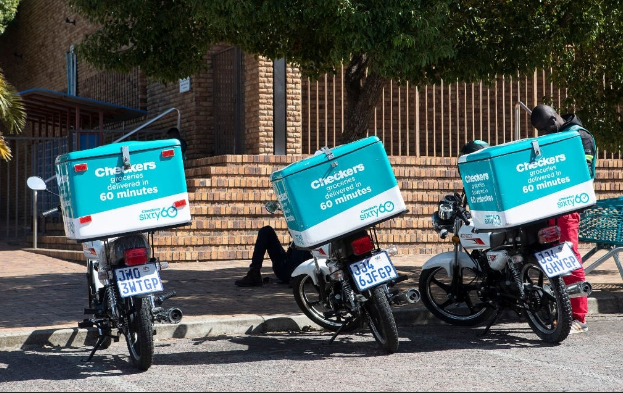Unlicensed riders and inadequate training among fast food and grocery delivery drivers in South Africa pose significant challenges.
Hein Jonker, founder of the Motorcycle Safety Institute of South Africa, has raised concerns about the prevalence of unlicensed riders, particularly foreign nationals, who may not have undergone proper motorcycle training or licensing processes.
In several African countries, a motorcar license can cover motorcycles without necessitating a separate test. Consequently, many riders arriving in South Africa may lack the requisite skills and training, leading to unsafe riding practices.
[ Truck Drivers Forum Announces Temporary Suspension Of Planned National Shutdown ]
Jonker emphasizes that the capacity of local authorities to check every rider’s license is limited, exacerbating the issue.
The responsibility, therefore, falls heavily on employers to thoroughly vet their riders. Unfortunately, many companies may overlook this crucial step, prioritizing rapid delivery services over ensuring that their riders are properly trained and licensed.
One of Jonker’s key recommendations to address this problem is the implementation of increased roadblocks and enhanced collaboration between law enforcement agencies.
Such measures could serve as a deterrent for unlicensed riding and encourage compliance with the necessary licensing and training requirements. Regular checks would not only ensure that riders are licensed but also that they possess the skills needed for safe motorcycle operation.
Moreover, Jonker advocates for comprehensive motorcycle training programs. These programs should be extensive enough to cover all essential aspects of riding, including road safety, navigation, and emergency maneuvers.
Adequate training is crucial for riders to develop the competence and confidence needed to navigate the often chaotic and perilous traffic conditions in South Africa’s urban areas.
In the fast-paced environment of fast food and grocery delivery services, riders often find themselves under immense pressure to complete deliveries swiftly.
This urgency is largely driven by the need to maximize earnings and meet the stringent delivery guarantees set by companies.
Unfortunately, these pressures can lead to dangerous road behaviors among delivery riders, significantly heightening the risk of accidents. Jonker’s insights into the industry reveal that the constant rush to deliver within tight timeframes compels riders to take risks they might otherwise avoid.
One of the most concerning outcomes of this job pressure is the improper management of safety protocols. For instance, riders may neglect to secure their helmets correctly or skip wearing them altogether in their haste to save time.
Additionally, the stress associated with meeting delivery targets can lead to reckless maneuvers in traffic, such as speeding, weaving between cars, and ignoring traffic signals. These actions not only endanger the riders but also pose significant risks to other road users.
Delivery service companies have recognized these challenges and have implemented various measures to address rider safety.
Uber, Mr D, Checkers Sixty60, Pick n Pay ASAP!, and Spar 2U have all taken steps to better their vetting and training processes.
For example, Mr D actively monitors the expiration dates of their riders’ licenses, ensuring that all drivers are legally authorized to operate their vehicles. Similarly, Takealot has developed a comprehensive delivery team development program aimed at enhancing rider skills and promoting safer driving practices.
Despite these efforts, there are still notable gaps in the industry’s approach to ensuring rider safety. Some companies have not provided detailed responses regarding their safety protocols, highlighting areas where further improvement is needed.
It is crucial for all stakeholders in the delivery service industry to prioritize rider safety by continuously refining their practices and addressing the unique challenges posed by the high-pressure nature of the job.
Catch up with the latest news from The Times Post on WhatsApp by following our channel. Click here to join.
Kindly follow @thetimespost on Instagram. On X (Twitter), follow @thetimespost2.


